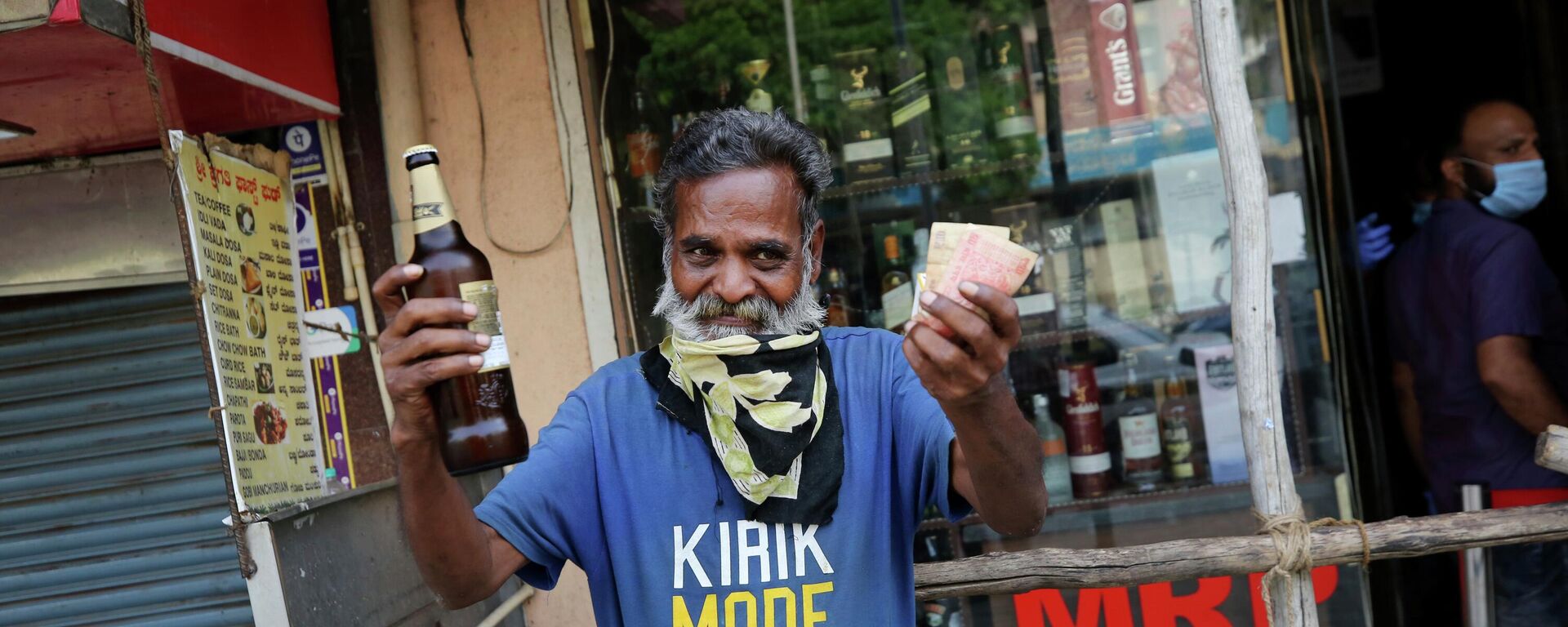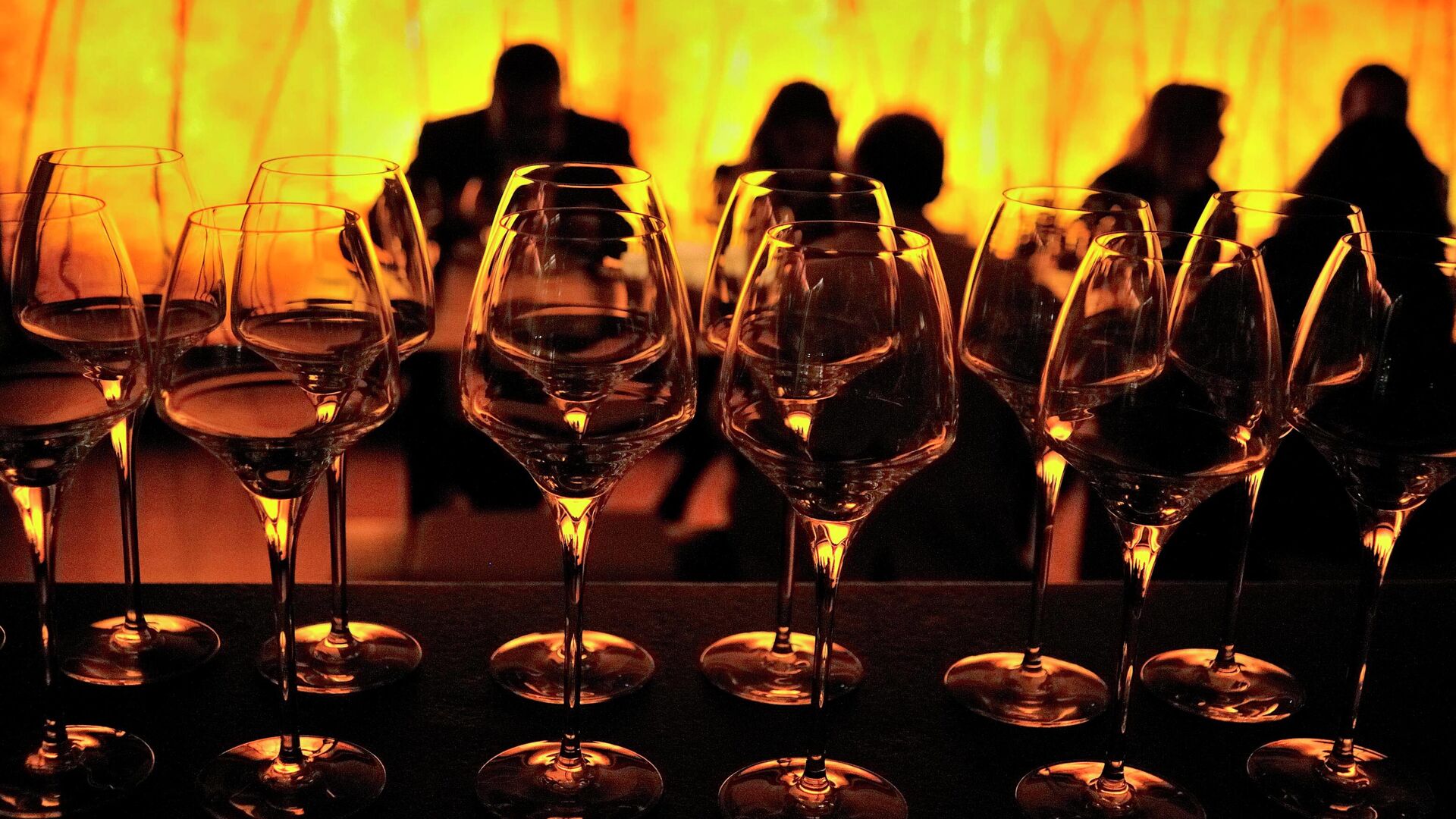https://sputnikglobe.com/20221004/delhi-to-go-dry-during-upcoming-dussehra--diwali-religious-festivals-1101488894.html
Delhi to Go 'Dry' During Upcoming Dussehra & Diwali Religious Festivals
Delhi to Go 'Dry' During Upcoming Dussehra & Diwali Religious Festivals
Sputnik International
Liquor companies usually look forward to the holiday seasons as demand for booze rises, giving a boost to their businesses — but this not the case in India... 04.10.2022, Sputnik International
2022-10-04T09:32+0000
2022-10-04T09:32+0000
2022-10-04T09:32+0000
india
diwali
alcohol
delhi
festival
festive
https://cdn1.img.sputnikglobe.com/img/07e6/0a/04/1101491322_0:149:3115:1901_1920x0_80_0_0_181db0937bf6e31037d3a45e2e704342.jpg
The Delhi government has declared the holy festivals of Dussehra and Diwali as 'dry days' in accordance with the new excise policy — this means that alcohol will not be available for sale in restaurants, bars or liquor stores there.In November 2021, an excise rule was issued that reduced the number of "dry days" from 21 to 3, making only three national holidays alcohol-free: Republic Day, Independence Day and Gandhi Jayanti. According to the new list issued by the Delhi government, in the remaining 3 months, 6 days will be "dry".Another important aspect of the Delhi government's excise policy was that all liquor contracts were given to private players. Previously, private contractors were only allowed to open 40% of stores; 60% of liquor contracts were with the government. After this policy, alcohol was sold very cheaply in the capital. This excise policy caused huge controversy in Indian society as people claimed that the "alcohol mafia" had lobbied for it. Therefore, the Delhi government had to reverse its decision.What's more, the Central Bureau of Investigation (CBI) has even filed a case of possible corruption, conspiracy, falsification of accounts and taking undue advantage in connection with the now canceled liquor policy of the Delhi government. The investigation is still ongoing.
https://sputnikglobe.com/20220916/federal-agency-raids-several-places-in-case-related-to-delhi-governments-liquor-policy-1100844435.html
delhi
Sputnik International
feedback@sputniknews.com
+74956456601
MIA „Rosiya Segodnya“
2022
News
en_EN
Sputnik International
feedback@sputniknews.com
+74956456601
MIA „Rosiya Segodnya“
Sputnik International
feedback@sputniknews.com
+74956456601
MIA „Rosiya Segodnya“
india, diwali, alcohol, delhi, festival, festive
india, diwali, alcohol, delhi, festival, festive
Delhi to Go 'Dry' During Upcoming Dussehra & Diwali Religious Festivals
Liquor companies usually look forward to the holiday seasons as demand for booze rises, giving a boost to their businesses — but this not the case in India during certain religious festivities, when the sale of alcohol is often prohibited.
The Delhi government has declared the holy festivals of Dussehra and Diwali as 'dry days' in accordance with the new excise policy — this means that alcohol will not be available for sale in restaurants, bars or liquor stores there.
In November 2021, an excise rule was issued that reduced the number of "dry days" from 21 to 3, making only three national holidays alcohol-free: Republic Day, Independence Day and Gandhi Jayanti. According to the new list issued by the Delhi government, in the remaining 3 months, 6 days will be "dry".

16 September 2022, 13:27 GMT
Another important aspect of the Delhi government's excise policy was that all liquor contracts were given to private players. Previously, private contractors were only allowed to open 40% of stores; 60% of liquor contracts were with the government. After this policy, alcohol was sold very cheaply in the capital.
This excise policy caused huge controversy in Indian society as people claimed that the "alcohol mafia" had lobbied for it. Therefore, the Delhi government had to reverse its decision.
What's more, the Central Bureau of Investigation (CBI) has even filed a case of possible corruption, conspiracy, falsification of accounts and taking undue advantage in connection with the now canceled liquor policy of the Delhi government.
The investigation is still ongoing.




